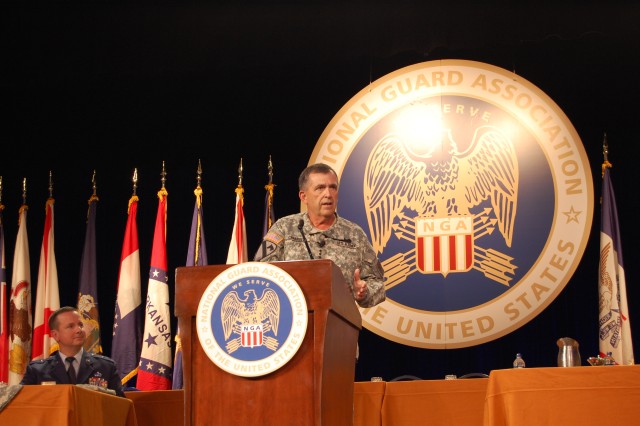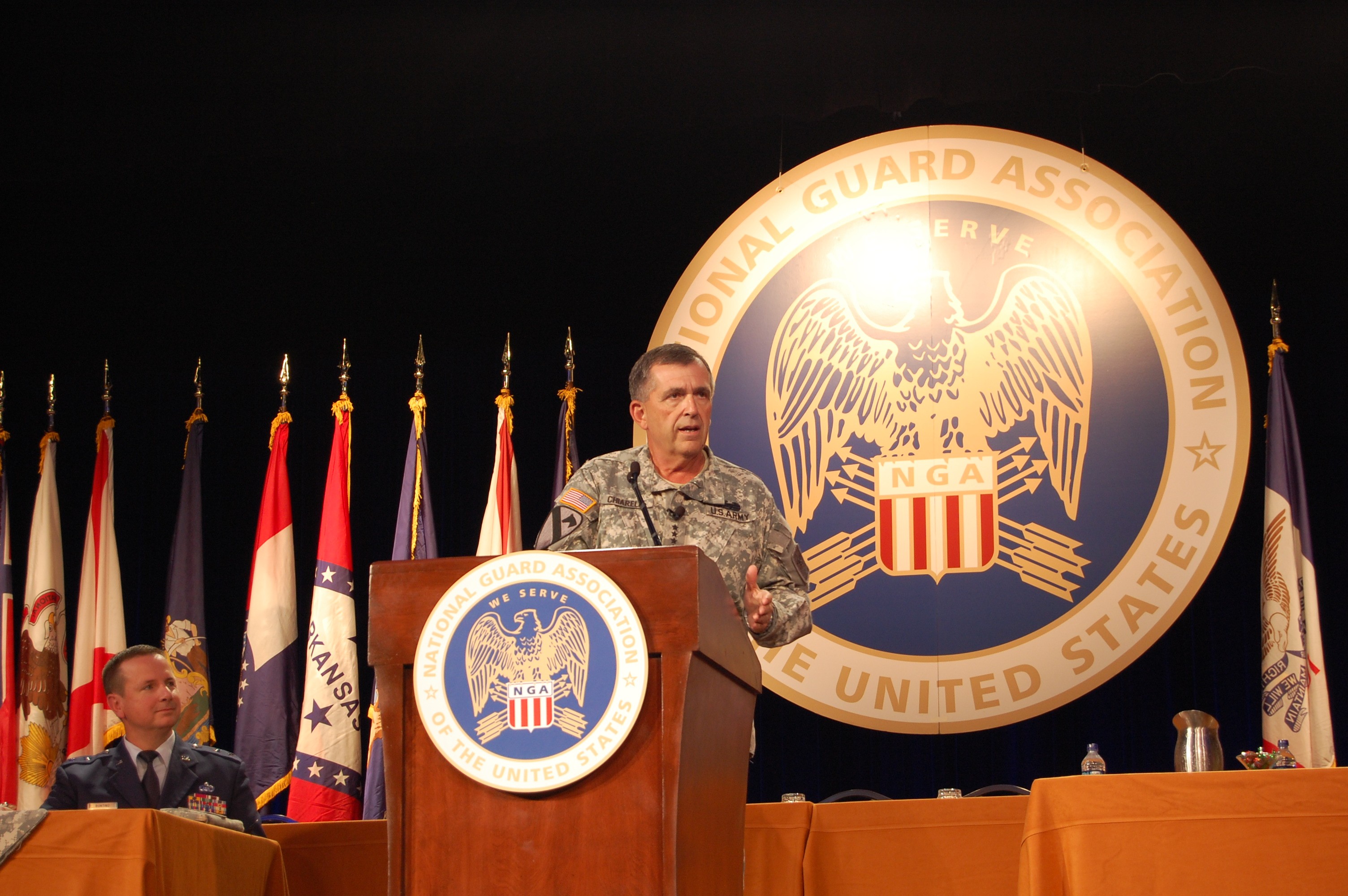
NASHVILLE, Tenn. (Sept. 15, 2009) -- With Soldier suicides reaching what Army leadership is calling "alarming numbers," a renewed emphasis is being placed on the mental well-being of Soldiers, the Army's second-in-charge said Sept. 13.
"We have a force that is much more resilient than I ever thought it was going to be, but it is much more stressed," Gen. Peter W. Chiarelli, the Army's vice chief of staff, told an audience here at the National Guard Association of the United States conference.
"In recent years, we've seen an increase in the number of Soldiers -- both active and reserve components --struggling with depression, anxiety and post-traumatic stress disorder," he said.
The Department of the Army has confirmed 111 Soldier suicides as of early September. Additionally, there have been 54 confirmed suicides in the Army National Guard and Army Reserve.
He added that there have been increases in violence, alcohol and substance abuse, and destructive or reckless behaviors.
"The challenge facing the Army today is the overall well-being of the force," Chiarelli said. "And that force includes the families."
The Army's aim is to increase Soldiers' overall resiliency and to make them aware that there are programs to help.
"In the past, the Army's approach was largely reactive - to treat or discipline Soldiers who violated Army standards. That has changed," Chiarelli said.
The Army will now assess and intervene early in the process to identify and mitigate issues before they become significant concerns, he said.
Chiarelli also highlighted an ongoing collaboration between the Department of the Army and the National Institute of Mental Health, which was struck in October 2008.
"We realize we must become proactive if we want to be successful in the challenging environment we find ourselves in today," he said.
Another way to solve some of the pressures facing Soldiers is to increase the amount of time between deployments.
Chiarelli cited an example of one Army unit that has a 3-percent medical non-deployment rate, versus other units' 12- to 15-percent rate.
When he asked his advisors what made that particular unit so successful, they said the unit had increased their time at home station to 26 months versus the average time of 16 months for most other units.
"It doesn't take a nuclear scientist to figure out that the key to this problem is to expand the time our Soldiers spend at home," Chiarelli said.
Additionally, the Army plans to add 417 behavioral health specialists to its rolls in order to mitigate mental health issues associated with increasing deployments and a growing operations tempo.
The introduction of online mental health diagnostic and treatment tools for Soldiers and their families is another key to helping Soldiers cope with the demands being placed upon them, he said.
"We have a responsibility to provide the same level of health care to National Guard Soldiers that we provide to the active duty," Chiarelli said.
In addition to beefing up the Army's mental wellness program, the general hopes to bring TRICARE coverage for Soldiers in the National Guard and Reserve more in line with their active-duty counterparts.
Chiarelli said that more than 700,000 National Guard and Reserve Soldiers have been called to active duty since 2001.
"It really is one team, one fight," he said. "But unfortunately, I think the challenges we are facing as a force are going to get harder before they get easier, as we continue to adjust to this new strategic environment."
Finally, Chiarelli highlighted the effort in Afghanistan, where an emphasis on agribusiness is helping to redirect the Afghan focus toward legitimate crops, which benefit the entire population instead of insurgent groups.
The effort of National Guard members, who are helping redevelop the country's essential farming practices lost to years of conflict, is a true success story, Chiarelli said.
"Today, National Guardsmen from agriculture states in middle America are deploying to Afghanistan to advise the Afghan people on modern farming techniques and business practices," he said.
He cited innovative irrigation techniques and grain storage facilities to livestock management and "green" power utilizing solar technology as some of the goals that will bring the people of Afghanistan toward independence and self-assurance.
"We're helping Afghanistan rebuild their economy, and this is absolutely critical to our success there," Chiarelli said. "These farmer-Soldiers represent the strategic tip of the spear."
But this critical mission is not funded in the National Guard by design, the general cautioned. Rather, these missions are conducted and funded by National Guard teams "out of hide" due to new requirements.
"This new requirement has undoubtedly contributed to the growing strain on our forces," he said.
"No doubt, there are tough days ahead and it'll require a total team effort by our active-duty and Reserve and National Guard components to make it happen," he said.
(Air Force Tech. Sgt. Nick Choy writes for the National Guard Bureau.)

Social Sharing